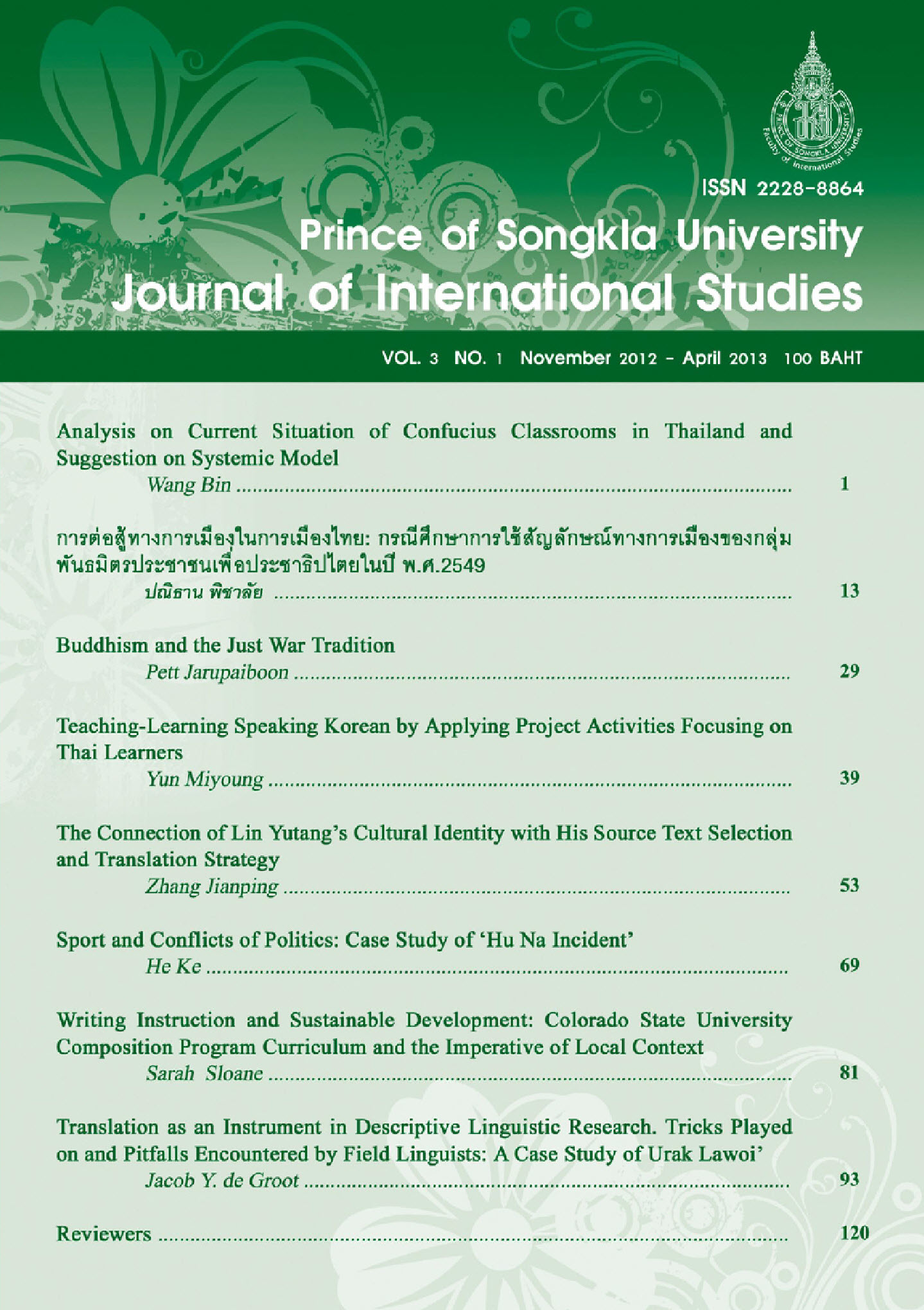The Connection of Lin Yutang's Cultural Identity with His Source Text Selection and Translation Strategy
Main Article Content
Abstract
Mr. Lin Yutang (1895-1976) introduced the traditional Chinese culture to the English speaking world in English that is "at once their envy, admiration and despair". His works had a far-reaching significance as to be considered as authoritative writings on the oriental culture. His translation of the classical Chinese literature, infiltrates in his English writings, such as My Country and My People, The Importance of Living, The Wisdom of Confucius, to such an extent that his translations become inseparable parts of his writings.
This paper expounds Lin's translating and the underlying reasons for his success in translation. As a great literary figure, Lin Yutang had his explicit purpose for his translation, that is, to disseminate the essences oftraditional Chinese culture, especially the simple and idyllic way of life enjoying the beauty of nature and art, to the West. His translation is successful from the angle of cultural exchange for he has succeeded in communicating the cream of traditional Chinese culture to his target audiences with his trenchant English. Two elements led to his success, the meticulous selection of the source texts and applying domestication as translation strategy. This paper discusses Lin Yutang's translation purpose and its constraints on Lin's source text selection and translation strategy application.
Article Details
Statements and opinions expressed in articles herein are those of the authors and do not necessarily reflect the position of the editors or publisher.
Article, information, text, image, etc. which are published in Journal of International Studies, belong to Journal of International Studies. If anybody or any organization would like to use part or whole of them, they must receive written permission from Journal of International Studies before usage.
References
Lawrence Venuti. (1998). The Translator's Invisibility: A History of Translation. London and New York: Routledge.
Lin Yutang. (1966). The Wisdom of Confucius. New York: Random House Incorporation.
Lin Yutang. (1971). The Wisdom of Laotze. New York: Random House Incorporation.
Lin Yutang. (1971). Tramp Doctor's Travelogue. New York: Random House Incorporation.
Lin Yutang. (1999). The Importance of Living. Beijing: Foreign Language Teaching and Research Press.
Lin Yutang.(1999). Six Chapters of a Floating Life. Beijing: Foreign Language Teaching and Research Press,
Lin Yutang. (2000). My Country and My People. Beijing: Foreign Language Teaching and Research Press.
Newmark, P. (2001). A Textbook of Translation. Shanghai: Shanghai Foreign Language Education Press,
Nida, E. A. (1975). Language Structure and Translation: Essays. Standard, California: Standard University Press, Nord,
Christiane. (2001). Translating as a Purposeful Activity: Functional Approaches Explained. Shanghai: Shanghai Foreign Language Education Press.
Pollard, D. (1998). Translation and Creation: Readings of Western Literature in Modern China. Amsterdam/Philadelphia: John Benjamines Publishing Company.
Wolfgang, Lorscher. (1991). Translation Performance, Translation Process, and Transaslation Strategies: A Psychological Investigation. Gunter: Narr Verlag Tubingen.


